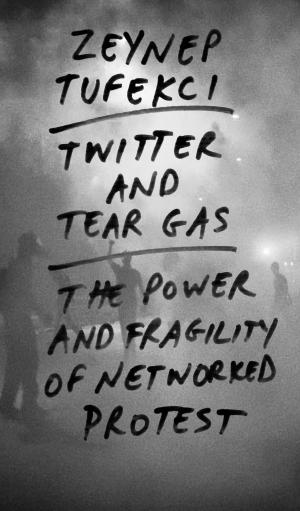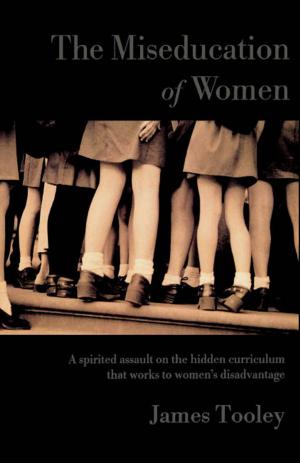Trump Versus Glinda
Nonfiction, Health & Well Being, Self Help, Self Improvement, Motivational, Social & Cultural Studies, Political Science| Author: | Scott Webb | ISBN: | 9781370111329 |
| Publisher: | Scott Webb | Publication: | January 11, 2017 |
| Imprint: | Smashwords Edition | Language: | English |
| Author: | Scott Webb |
| ISBN: | 9781370111329 |
| Publisher: | Scott Webb |
| Publication: | January 11, 2017 |
| Imprint: | Smashwords Edition |
| Language: | English |
"We're not in Kansas anymore!" is something most Americans know. And we know Dorothy and the entire cast of characters. But did we really understand Glinda? Who is she? Could she be our subconscious, pre-Christian, mythic roots from ancient Roman and Greek pagan times? This brief analysis of Glinda and American culture from 1939 may help to prepare us and to cope better for the Trump years. Maybe even to thrive as never before.
With Donald Trump's Tweets and his Cabinet's upcoming machinations to spotlight in the media, we can predict an intensifying of emotions across America and the world, so let's perhaps accept that coming reality right now. Why find yourself suddenly surprised, angry or flummoxed? Meanwhile, this can be an era of great individual awakening and why not?
Awakening, however, is a tricky business and comes with its own perils. This book is intended as a quick reference guide to better understand our own uniquely American cultural history and how that helps to further our ability to handle current reality as a matter of individual transformation (and not just something to protest against).
Most Americans assume that The Wizard of Oz is one thing, but is it really another? If so, it's time to jerk the wraps off one of history's most wonderful mythic adventure stories. With almost one hundred pictures analyzed one-by-one, the story plot is unwrapped here as telling us about law, and the abuse of law, and "the telling of lies" in light of keeping agreements one to another. The Land of Oz is an unconscious landscape as to why Dorothy has been betrayed by adult society as represented by her aunt and uncle, her neighbor Miss Gulch, and the Wizard. The Christian Church figures into the story because Aunt Em identifies herself as "a Christian" woman, while we can assume that Miss Gulch was also a church-goer and neither is presented as a role model.
Dorothy represents their antithesis and Glinda represents the synthesis, which comes via a Higher Power.
Glinda appears as a contrast to the people of Kansas and her "floating as a ball of light" represents epiphany, which Dorothy receives at the end of the story. What epiphany? That she wears "the ruby slippers," which are likewise symbols. Through a symbolic interpretation, every aspect touches the human subconscious awareness of our deeper mythic roots extending to Pagan concepts found in Jupiter (Father of Light), Jove (jovial), and Apollo (apology). Christianity in 1939, when The Wizard of Oz was released, was being subverted by eugenic supremacy concepts as decidedly Christian nations were going to war (WWII). Glinda represented the timeless version of what we would now call "The Force" or "the law of attraction" and these definitions of spiritual understanding are very much relevant to today and need not be at odds with more Puritanical versions of faith.
The question remains, "How do we get what we want?" Because as Alan Watts stated, "We are not going to have Democracy in the Kingdom of Heaven."
It's not good enough at this juncture in human history to stand for progressive ideals. What's important to grasp is that the apocalyptic issues which face us today are the same ones rooted in antiquity and brought alive in full color through The Wizard of Oz. Read this analysis and see things in the movie you never saw before, right in plain view! If Dorothy had the power all along to "get home to Kansas," then so do we. Let's not miss it again. There's not another truth, just the one that's been here all along.
#Post-truth be damned. Dorothy truth and Toto now!
"We're not in Kansas anymore!" is something most Americans know. And we know Dorothy and the entire cast of characters. But did we really understand Glinda? Who is she? Could she be our subconscious, pre-Christian, mythic roots from ancient Roman and Greek pagan times? This brief analysis of Glinda and American culture from 1939 may help to prepare us and to cope better for the Trump years. Maybe even to thrive as never before.
With Donald Trump's Tweets and his Cabinet's upcoming machinations to spotlight in the media, we can predict an intensifying of emotions across America and the world, so let's perhaps accept that coming reality right now. Why find yourself suddenly surprised, angry or flummoxed? Meanwhile, this can be an era of great individual awakening and why not?
Awakening, however, is a tricky business and comes with its own perils. This book is intended as a quick reference guide to better understand our own uniquely American cultural history and how that helps to further our ability to handle current reality as a matter of individual transformation (and not just something to protest against).
Most Americans assume that The Wizard of Oz is one thing, but is it really another? If so, it's time to jerk the wraps off one of history's most wonderful mythic adventure stories. With almost one hundred pictures analyzed one-by-one, the story plot is unwrapped here as telling us about law, and the abuse of law, and "the telling of lies" in light of keeping agreements one to another. The Land of Oz is an unconscious landscape as to why Dorothy has been betrayed by adult society as represented by her aunt and uncle, her neighbor Miss Gulch, and the Wizard. The Christian Church figures into the story because Aunt Em identifies herself as "a Christian" woman, while we can assume that Miss Gulch was also a church-goer and neither is presented as a role model.
Dorothy represents their antithesis and Glinda represents the synthesis, which comes via a Higher Power.
Glinda appears as a contrast to the people of Kansas and her "floating as a ball of light" represents epiphany, which Dorothy receives at the end of the story. What epiphany? That she wears "the ruby slippers," which are likewise symbols. Through a symbolic interpretation, every aspect touches the human subconscious awareness of our deeper mythic roots extending to Pagan concepts found in Jupiter (Father of Light), Jove (jovial), and Apollo (apology). Christianity in 1939, when The Wizard of Oz was released, was being subverted by eugenic supremacy concepts as decidedly Christian nations were going to war (WWII). Glinda represented the timeless version of what we would now call "The Force" or "the law of attraction" and these definitions of spiritual understanding are very much relevant to today and need not be at odds with more Puritanical versions of faith.
The question remains, "How do we get what we want?" Because as Alan Watts stated, "We are not going to have Democracy in the Kingdom of Heaven."
It's not good enough at this juncture in human history to stand for progressive ideals. What's important to grasp is that the apocalyptic issues which face us today are the same ones rooted in antiquity and brought alive in full color through The Wizard of Oz. Read this analysis and see things in the movie you never saw before, right in plain view! If Dorothy had the power all along to "get home to Kansas," then so do we. Let's not miss it again. There's not another truth, just the one that's been here all along.
#Post-truth be damned. Dorothy truth and Toto now!















